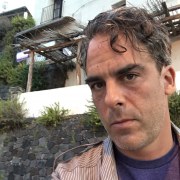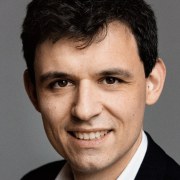The role of museums in advancing skills for the 21st Century
Malta Experience Auditorium
There is a growing embrace of UNESCO’s Futures Literacy framework as a key capability for the 21st Century. A broad international movement of institutions is dedicated to Futures Literacy. Many of them are assembled in a newly-founded worldwide network called FORMS: Futures-Oriented Museum Synergies.
FORMS is premised on the assumption that if museums want to advance the public’s imagination on futures through participatory processes then they need to ‘walk the talk’ and be open to experimenting with ways of connecting and learning from one another. FORMS in this sense becomes not only a platform to exchange ideas and experiences but also a forum for co-creation and collaboration.
This panel, with directors from international futures-oriented museums within the FORMS network, will discuss the role of Futures Literacy in museums, as well as the relevance for networks such as FORMS, towards advancing 21st Century skills and capabilities.
This session is sponsored by Archimedes Exhibitions as a part of the 21st century skills conference track.
Outcomes: what will participants get from this session? Skills, knowledge, experience etc.
What is FORMS and what makes it unique from other networks? What is Futures Literacy and how is it relevant to FORMS? How might we define a futures-oriented museum? How can museums help advance 21st Century Skills? Why - and how - are museums essential for the diversification, democratisation, and decolonisation of futures? How could futures-thinking and futures-practices help museums shapeshift their roles as “guests” in the minds of their audiences?
Session speakers
Dubai
United Arab Emirates
Lath Carlson, founding Executive Director of Dubai’s Museum of the Future, will explore the importance of bringing a collective and global perspective to futures work. We still live in an era when the mass conception of the future is one in which technology has had a negative impact, and a singular hero is required to save us (maybe with a sidekick/love interest). From the MOTF’s position at the world’s crossroads, we rather see a hopeful future centred on collective action and systemic change. The challenges experienced over the last year using this approach will also be openly discussed
Maria Isabel Garcia will explore the role of museums in the context of the “rage”, and “constant and imminent peril” brought about by emergencies like the climate crisis and the biodiversity crash. If the future were a sniper and we are at the crosshairs of both of those emergencies, fed and complicated by other wide-scale systemic problems, what does resilience look like in terms of “skills”, “exchange”, “cooperation” and how can re-imagined museums help not just convene these voices but bring them to act for positive change?
Stefan Brandt will delve into how Futures Literacy can be conveyed through exhibitions, events, and workshops. Increasingly, interactive and dialogic formats are replacing the traditional "deficit model" of communicating to the audience. In this context, it will be highlighted how the FORMS network aims to ensure a knowledge transfer of innovative ideas between its global members. Part of this effort are the FORMS network's joint festivals on Futures Literacy, hosted annually by rotating international institutions. Findings from the first public FORMS festival, held in Berlin in the fall of 2022, will be presented.




